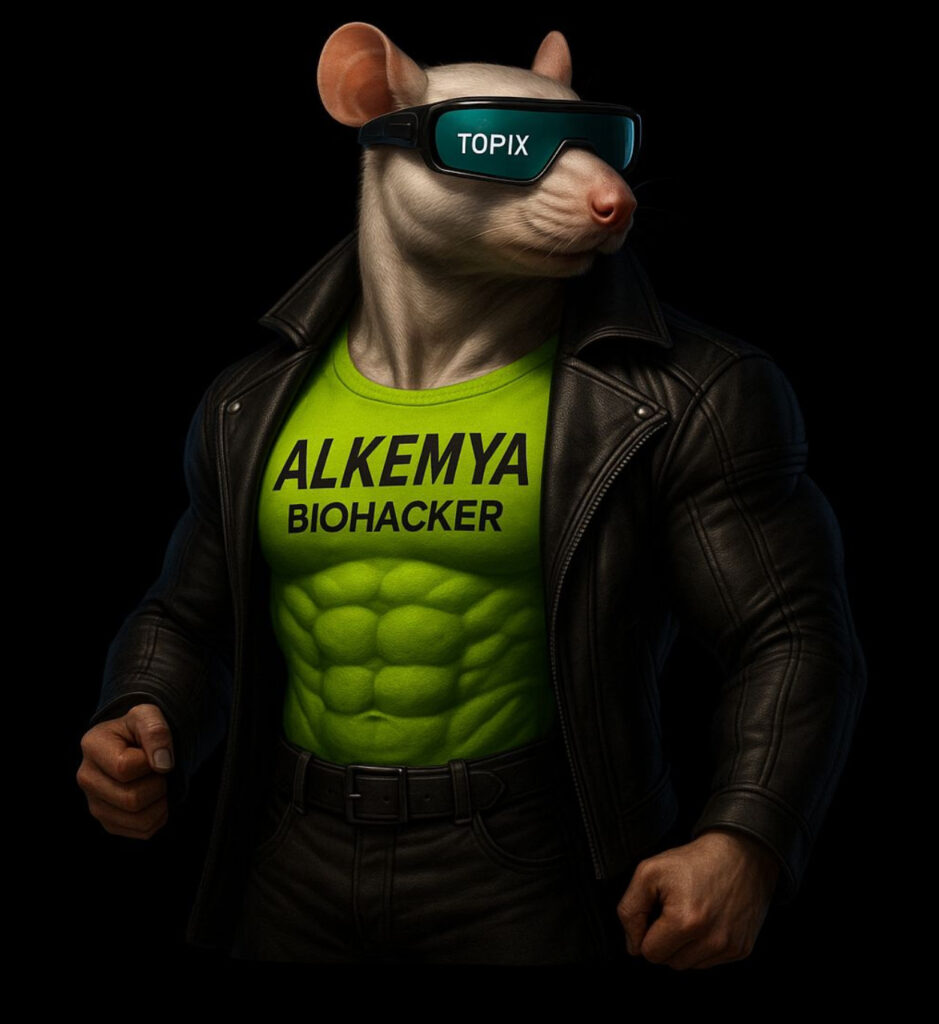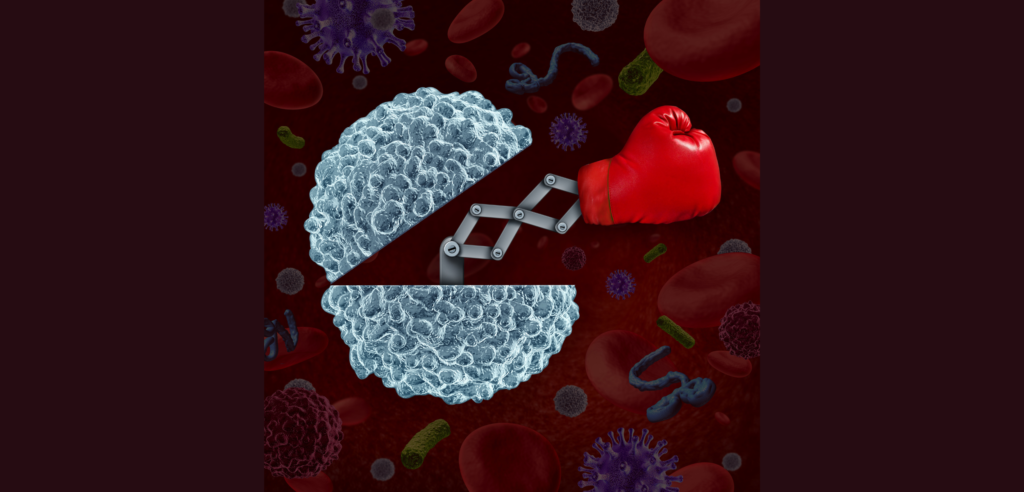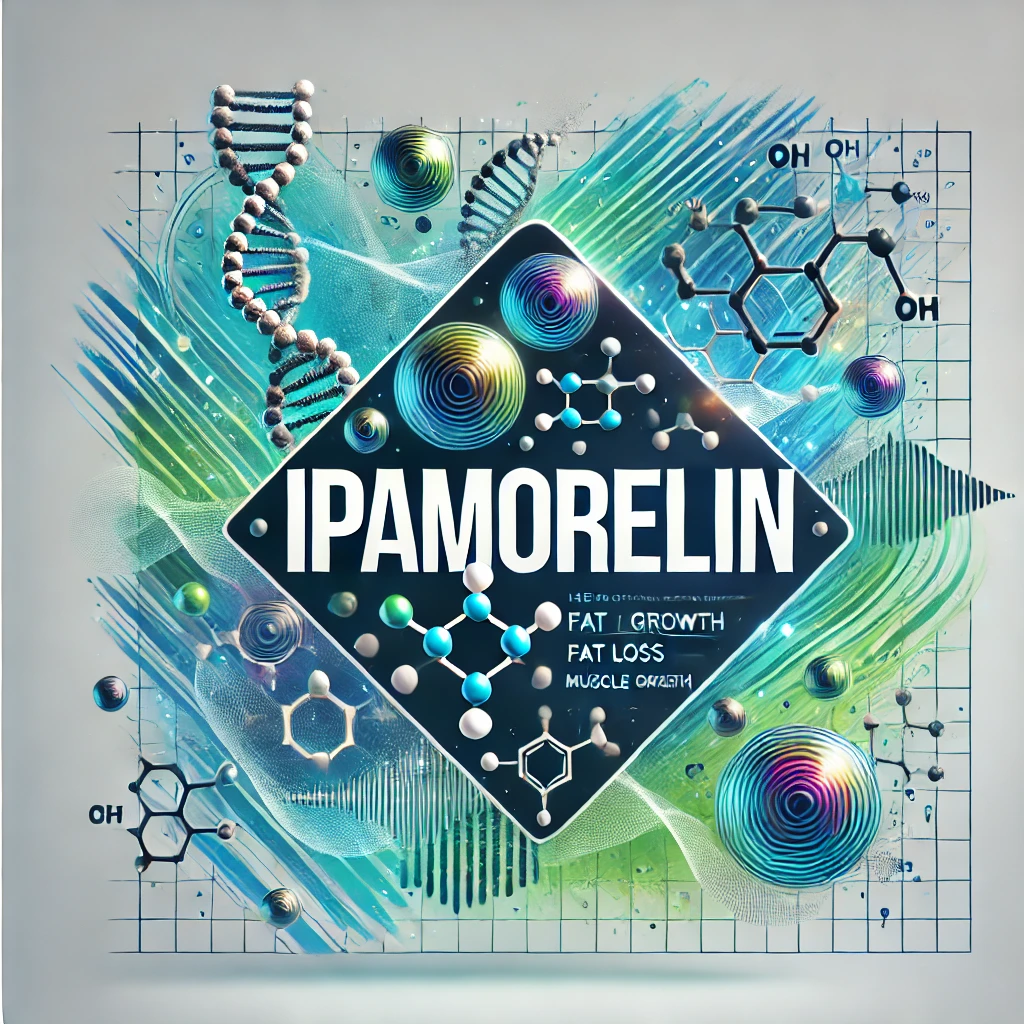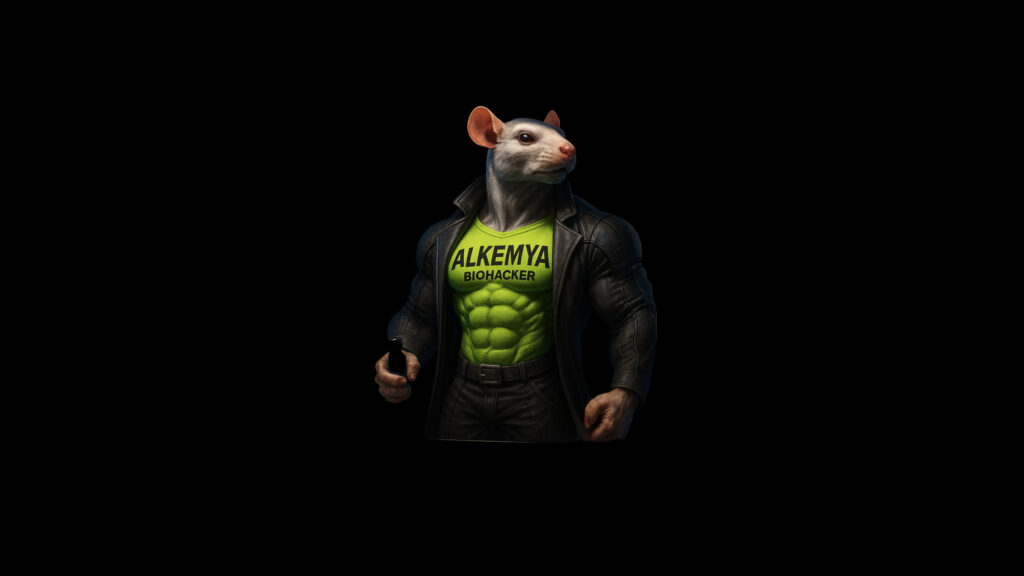The peptide KPV is a tripeptide
that is made of the amino acids lysine (K), proline (P) and valine (V).
This peptide has gained increasing attention in the scientific community for its anti-inflammatory properties and its potential therapeutic use in various inflammatory and autoimmune conditions.
The KPV peptide is not attributed to a single discoverer, but was identified and studied as part of the broader research on peptides derived from alpha-melanocyte-stimulating hormone (α-MSH).
Alpha-melanocyte-stimulating hormone (α-MSH) is an endogenous peptide, i.e., produced by the human body, that is a member of the melanocortin family.
It is mainly produced in the anterior pituitary gland, but can also be synthesized in other tissues, including peripheral tissues such as the skin and intestine.
Initial research on KPV was conducted in the contexts of exploring the pharmacological properties of α-MSH and its fragments.
α-MSH is known for its ability to influence a wide range of physiological processes, ranging from skin pigmentation to modulation of inflammatory and immune responses.
Numerous scientific studies have shown that the tripeptide KPV retains many of the beneficial properties of α-MSH, but with a simpler and more stable structure.
The research work on α-MSH-derived peptides, including the discovery and characterization of KPV, is the result of contributions from many researchers in the fields of biochemistry, immunology, and pharmacology.
These studies have been published in scientific journals and have led to a better understanding of the therapeutic potential of KPV.
In summary, there is no single person to whom the discovery of KPV can be attributed, but rather it is the result of collective and progressive scientific research efforts in the field of peptides and their medical applications.
In this article, we will explore the KPV peptide in detail, including its biochemical properties, mechanisms of action, possible therapeutic uses, ways of use, and recommended dosages.
Biochemical Properties of KPV Peptide.
As we have already mentioned, the KPV peptide is a short sequence of three amino acids: lysine, proline and valine.
The short structure of the peptide contributes to its stability and ease of synthesis.
The specific sequence of KPV is particularly interesting because of the individual characteristics of each amino acid that makes it up.
The combination of these three amino acids gives the KPV peptide its unique properties:
- Stability and Ease of Synthesis:
The short structure and composition of the KPV peptide make it stable and easy to synthesize in the laboratory. This is a significant advantage for production and therapeutic use. - Protein Interactions:
Lysine contributes to protein interactions and stabilization of protein structures through ionic bonds and salt bridges, which are essential for the biological function of the peptide. - Rigidity and Conformation:
Proline introduces rigidity into the peptide chain, influencing the conformation of the peptide and stabilizing secondary structures. This rigidity is crucial for the function of the peptide in biological environments. - Hydratophobic Stability:
Valine, with its hydrophobic properties, helps stabilize the overall structure of the peptide, making it resistant to degradation and facilitating its function in aqueous environments such as the human body.
Mechanisms of Action.
KPV peptide exerts its anti-inflammatory properties through several complex and integrated mechanisms.
One of the main mechanisms of action of KPV peptide is the inhibition of the transcription factor NF-κB.
This factor is a protein that plays a key role in the regulation of DNA transcription, cytokine production and cell survival.
When NF-κB is activated, it moves into the cell nucleus and promotes the expression of pro-inflammatory genes.
KPV peptide is able to interfere with this process, reducing the activation of NF-κB and, consequently, the production of inflammatory cytokines such as IL-1β, TNF-α and IL-6, which are key mediators of inflammation.
Another important mechanism of action of KPV peptide is the reduction of oxidative stress.
Oxidative stress occurs when there is an imbalance between the production of reactive oxygen species (ROS) and the body’s ability to neutralize them through antioxidant systems.
KPV peptide possesses antioxidant properties that help mitigate the damaging effects of ROS, protecting cells from oxidative damage and reducing inflammation associated with many chronic diseases.
KPV peptide has the ability to influence the behavior of immune system cells, which are critical to the human body’s inflammatory response.
First, KPV can act on macrophages, which are a type of immune cell involved in inflammation.
Macrophages can have two different “personalities”: they can be pro-inflammatory (called M1) or anti-inflammatory (called M2).
M1 macrophages help fight infection and eliminate damage, but they can also contribute to chronic inflammation.
M2 macrophages, on the other hand, help extinguish inflammation and repair damaged tissues.
KPV peptide promotes the transformation of macrophages to the M2 type, thus helping to reduce inflammation and promote tissue healing.
In addition, KPV peptide can modulate the activity of T lymphocytes, another type of immune system cells.
T lymphocytes are responsible for the production of cytokines, which are molecules that regulate inflammation.
KPV can reduce the production of pro-inflammatory cytokines by T lymphocytes, helping to create a more balanced and less inflamed environment within the ‘body.
KPV also acts directly on epithelial cells, which line the inner and outer surfaces of the body, including the intestines.
This action is particularly relevant in inflammatory bowel diseases such as Crohn’s disease, where the integrity of the epithelial barrier is compromised.
KPV peptide can promote epithelial wound healing, strengthen the intestinal barrier, and reduce inflammation, improving bowel function and reducing symptoms of inflammatory bowel disease.

KPV Therapeutic Applications.
KPV has potential applications in a variety of medical conditions due to its anti-inflammatory and immunomodulatory properties.
For example, in inflammatory bowel diseases (IBD), which include Crohn’s disease and ulcerative colitis, KPV peptide could reduce intestinal inflammation and promote healing of intestinal lesions.
Preliminary studies have shown that KPV can decrease IBD symptoms, improving patients’ quality of life.
For dermatitis and other skin diseases, such as atopic dermatitis and psoriasis, KPV peptide has shown promising effects in reducing skin inflammation.
Applied topically, it can relieve symptoms such as itching, redness and flaking, improving the appearance and health of the skin.
Rheumatoid arthritis, an autoimmune disease characterized by joint inflammation, may also benefit from the anti-inflammatory properties of KPV peptide.
By reducing joint inflammation and pain, KPV can improve mobility and quality of life for patients with this debilitating condition.
KPV peptide may also be useful in other autoimmune conditions because of its ability to modulate the immune system.
In diseases such as systemic lupus erythematosus and multiple sclerosis, where the immune system mistakenly attacks the body’s own tissues, KPV can help reduce inflammation and prevent further tissue damage.
Another area of application for KPV peptide is the promotion of wound healing.
It can accelerate healing and reduce scar formation, making it useful in surgery and chronic wound management.
Studies have shown that KPV can improve tissue regeneration and reduce recovery time after injury or surgery.
Ways of Use and Dosages.
KPV peptide can be administered in different forms, depending on the condition to be treated and the patient’s preference.
For systemic conditions, such as inflammatory bowel disease, KPV peptide can be taken orally.
KPV capsules or tablets are formulated to withstand the acidic environment of the stomach and release the peptide into the intestines.
The recommended oral dose ranges from 5 mg to 20 mg daily, depending on the severity of the condition and the patient’s response.
This method allows wider distribution of the peptide in the body, facilitating the treatment of systemic inflammation.
Intranasal administration of KPV peptide is an alternative method that can ensure rapid absorption into the bloodstream. This method is particularly useful for systemic inflammatory conditions and for patients who prefer to avoid injections.
Intranasal administration is less invasive than injections and can be easily performed by the patient himself.
For conditions requiring a rapid, systemic effect, KPV peptide can be administered via subcutaneous injections.
The typical dose ranges from 1 mg to 10 mg per injection, administered once or several times a week.
Subcutaneous injections allow rapid and effective distribution of the peptide throughout the body, making it useful for acute or severe inflammatory conditions.
Dosage and Guidelines for the KPV Peptide Cycle.
KPV peptide is available in several forms of administration, each with specific dosages recommended to ensure treatment efficacy and safety.
Oral Capsules:
The general recommended dose for KPV in oral capsule form is 250 mg. This form of administration is particularly useful for the systemic treatment of inflammatory conditions.
Subcutaneous injections:
Regarding injections, the safe dosage ranges from 200 to 500 micrograms (mcg).
Injections allow for rapid absorption and effective distribution of the peptide in the body, making them ideal for dealing with acute or systemic inflammation.
Topical Cream:
Topical cream containing KPV is generally applied in a dose of 7.5 mg directly to the affected area.
This mode of administration is particularly suitable for treating local dermatological conditions such as inflammation, itching and swelling.

Guidelines for the KPV Cycle.
Oral Capsules:
KPV 250 mg capsules can be taken twice daily.
This regimen should be followed until the condition for which KPV is administered is completely cured.
It is important to follow the doctor’s directions and monitor the response to treatment regularly to adjust the dosage if necessary.
Injections:
A dose of 200-500 mcg of KPV can be injected once daily.
This approach is effective for the treatment of systemic inflammation and can be modulated according to symptom severity and individual response to treatment.
Injections should preferably be performed by qualified healthcare professionals to ensure the safety and efficacy of treatment.
Treatment Monitoring:
During treatment with KPV, it is critical to carefully monitor the patient’s response.
This includes assessment of symptoms, any side effects, and overall treatment effectiveness.
Regular consultation with the physician helps to ensure that dosing is appropriate and to make any necessary adjustments.
Dosage Customization:
The dosage of KPV may vary depending on several factors, including the severity of the condition, the patient’s age, body weight, and individual response to treatment.
Therefore, it is essential to customize the dosage under the supervision of a health care professional.
Prolonged Use and Cycles of Treatment:
For some chronic conditions, long-term treatment with KPV may be necessary. In such cases, it is important to follow specific treatment cycles to prevent desensitization or decreased effectiveness of the peptide. The physician may recommend break periods between treatment cycles to optimize therapeutic results.
Side Effects.
KPV peptide is generally well tolerated, but as with any therapy, side effects may occur.
Common side effects include skin reactions, gastrointestinal complaints and allergic reactions.
Oral intake of KPV peptide may cause gastrointestinal discomfort, such as nausea or diarrhea, in some patients.
It is advisable to start with a low dose and increase it gradually to minimize these side effects.
If symptoms persist, a physician should be consulted.
If you experience symptoms such as rashes, itching, swelling or difficulty breathing, you should discontinue use of the product.
It is important to follow your doctor’s instructions and carefully monitor any adverse reactions during treatment.
KPV peptide represents a promising therapeutic option for a variety of inflammatory and autoimmune conditions.
Its anti-inflammatory and immunomodulatory properties, together with its good tolerability, make it an ideal candidate for further clinical research and therapeutic applications.
However, as with any new treatment, it is important to consult a physician before beginning use of KPV peptide to ensure that it is appropriate for your condition and to determine the correct dosage.
The growing interest in KPV peptide and its therapeutic applications could lead to new discoveries and a better understanding of its potential in the coming years.
With further studies and clinical trials, KPV peptide could become an integral part of the management of inflammatory and autoimmune diseases, improving the quality of life for many patients.









